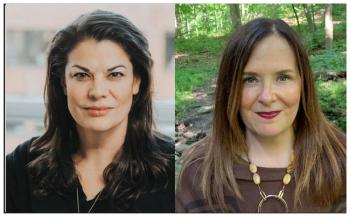Image Caption
Summary
Local Journalism Initiative Reporter
Windspeaker.com
Patrice Mousseau is confident she can help spark a change.
Mousseau, who owns Satya Organic, a natural skin care product, has joined forces with other Indigenous women to bring awareness to the 15 per cent pledge in Canada.
The group is now calling on major retailers across Canada to commit 15 per cent of their shelf space to BIPOC (Black, Indigenous, People of Colour) products.
The group was founded as a women’s Indigenous entrepreneur support group.
Mousseau is a member of the Fort William First Nation in northern Ontario who now lives in New Westminster, B.C. She said the support group has more than 100 members, with as many as 40 of them regularly meeting every Sunday since the spring via Zoom to discuss ways to keep their businesses alive during the pandemic.
Mousseau says the country’s top retailers have a very limited number of Indigenous products in their stores, despite five per cent of the Canadian population being Indigenous.
A recent survey showed the Hudson’s Bay Company had more than 1,800 brands in its stores, but only one Indigenous product. And Holt Renfrew, which carries 282 brands, had zero Indigenous-owned products.
“The numbers are just appalling,” Mousseau said. “They’re really way behind in terms of the representation of this country.”
Mousseau believes things will start to change and more and more big retailers will start carrying a larger amount of Indigenous-owned or BIPOC products.
“Their consumers are asking them for it,” Mousseau said. “They’re no longer happy with the status quo.”
Mousseau said her group is following in the footsteps of the 15 per cent pledge which began in the United States.
A movement called on major retailers to commit a minimum of 15 per cent of their shelf space to Black-owned businesses, where Black people make up about 15 per cent of the American population. In Canada, 3.5 per cent of the population is Black. And, according to the 2016 census, 22.3 per cent of Canadians identify as visible minorities.
“We’re trying to encourage this conversation with these retailers,” Mousseau said.
Though it has been less than a week since Mousseau’s group launched its 15 per cent pledge campaign, there are some positive signs.
“Companies are already starting to reach out,” she said. “Stores are looking to increase the amount of BIPOC business they have.”
Mousseau said the group is also keen to change the Indigenous-themed products that many Canadian gift shops, tourist locations, museums, galleries and cultural centres currently carry. She said many of those products are not made in Canada and do not have any connection to Indigenous artists.
“We need to be protecting our cultural identity as well,” Mousseau said, who would prefer to see independent Indigenous entrepreneurs have their products sold in these venues.
To drum up some support for its 15 per cent pledge, the group has come up with a social media giveaway of products and services worth about $1,500.
To be eligible for the giveaway, individuals must tag their favourite retailers in their social media posts so officials from those businesses can see the varying Indigenous products being offered.
Mousseau said members of her support group also had another giveaway about six weeks ago.
“That got a lot of new followers for the group,” Mousseau said, adding retailers were not tagged in posts during that promotion.
“The first time we did this about six weeks ago it was so impactful. And we thought we should do this in a bigger way. The first time we did it, it was just a giveaway. We wanted to bring some awareness to these brands.”
April Mitchell-Boudreau is among those hoping to raise some awareness for her Indigenous jewelry business called Lofttan, which she co-owns with her husband Doug.
Mitchell-Boudreau, a Turtle Clan Mohawk who lives in the Ontario city of St. Catharines, has been making jewelry for 20 years.
When the pandemic hit earlier this year, her products were available in 60 independent retail shops throughout Ontario.
“You can imagine how we have been impacted by COVID-19,” Mitchell-Boudreau said. “All of those stores were closed.”
Though many have since reopened, Mitchell-Boudreau does not believe that will generate in any new business for her.
“I suspect nobody is going to be ordering anything for the fall,” she said.
In fact, Mitchell-Boudreau has heard at least one of those retailers that carried her products has permanently closed. And she is not certain how many of the others will be able to survive.
“I think most of them are still open,” she said. “I suspect it’s going to be a fluid situation for the next little while.”
Yet Mitchell-Boudreau remains hopeful. And she believes the 15 per pledge campaign could end up proving to be a successful venture not only for her but for other Indigenous business owners as well.
“Social media is very powerful,” she said. “It’s a wonderful way to engage people that want to find us.”
Mitchell-Boudreau is hoping some major Canadian retailers come on board and that she’ll start providing employment to some others.
“Right now we do everything in-house,” she said. “We want to put the work into the hands of Elders, young parents at home and even teenagers.”
For more information about the pledge or to sign the petition asking Canadian retailers to jump on board, go to 15percentpledge.ca/
As of Thursday morning the petition had almost 7,000 signatures.

